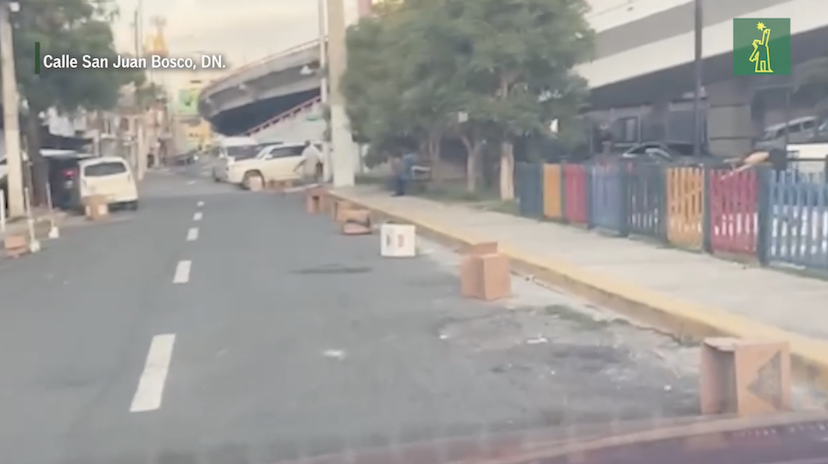
A recent report in Diario Libre by journalist Adalberto de la Rosa exposes the systemic challenge informal parking entrepreneurs represent to the general public. He looks into how they exploit public infrastructure without legal accountability. While authorities acknowledge the issue, they do little. Their responses to the inquiries for the Diario Libre story were that they remain limited to administrative measures and collaboration with law enforcement, leaving a gap in addressing the root causes of this informal economy.
Informal parking entrepreneurs in the Dominican Republic have turned public streets into private business zones by blocking spaces in high-traffic areas (e.g., hospitals, parks, event venues, and churches) to charge unauthorized parking fees. These operators, known as “parqueadores,” have taken charge of public spaces without legal authorization, oversight, often using makeshift tickets (RD$100–300) or verbal demands. Their tactics include placing obstacles, using coercive language (“Tamo aquí jefe”), and, in extreme cases, damaging vehicles (scratches, broken mirrors) if payment is refused.
The practice is considered an “usurpation of public functions” but lacks specific criminal penalties. Administrative actions or legal recourse (e.g., for damage) are the primary responses.
Informal operators exploit public spaces for profit, creating a de facto “illegal business” that undermines urban mobility and public safety. As reported, the business of key strategic points can be good. One informal parking operator said that on a good day he could take home RD$3,000.
Diario Libre reported that the authorities are aware of the situation but have not taken action, with different departments leaving the task up to another. The newspaper reports that Intrant (National Institute of Transit and Land Transport) says the issue is not its direct responsibility and instead urged local authorities at the Digesett and the City Hall to take action.
The Digesett (General Traffic and Land Transport Agency) told the reporters that it is the City Hall, not Intrant, that has the authority to set legal parking tariffs via ordinances. Digesett emphasized that while informal parking isn’t a specific criminal offense, it can be addressed administratively or penalized if it involves intimidation, extortion, or property damage.
The City Hall says it collaborates with Digesett, National Police, and prosecutors to remove informal operators, protect citizens, and enforce regulations under Intrant-creating Law 63-17 on Mobility and Traffic.
Read more in Spanish:
Diario Libre
Diario Libre
12 June 2025

